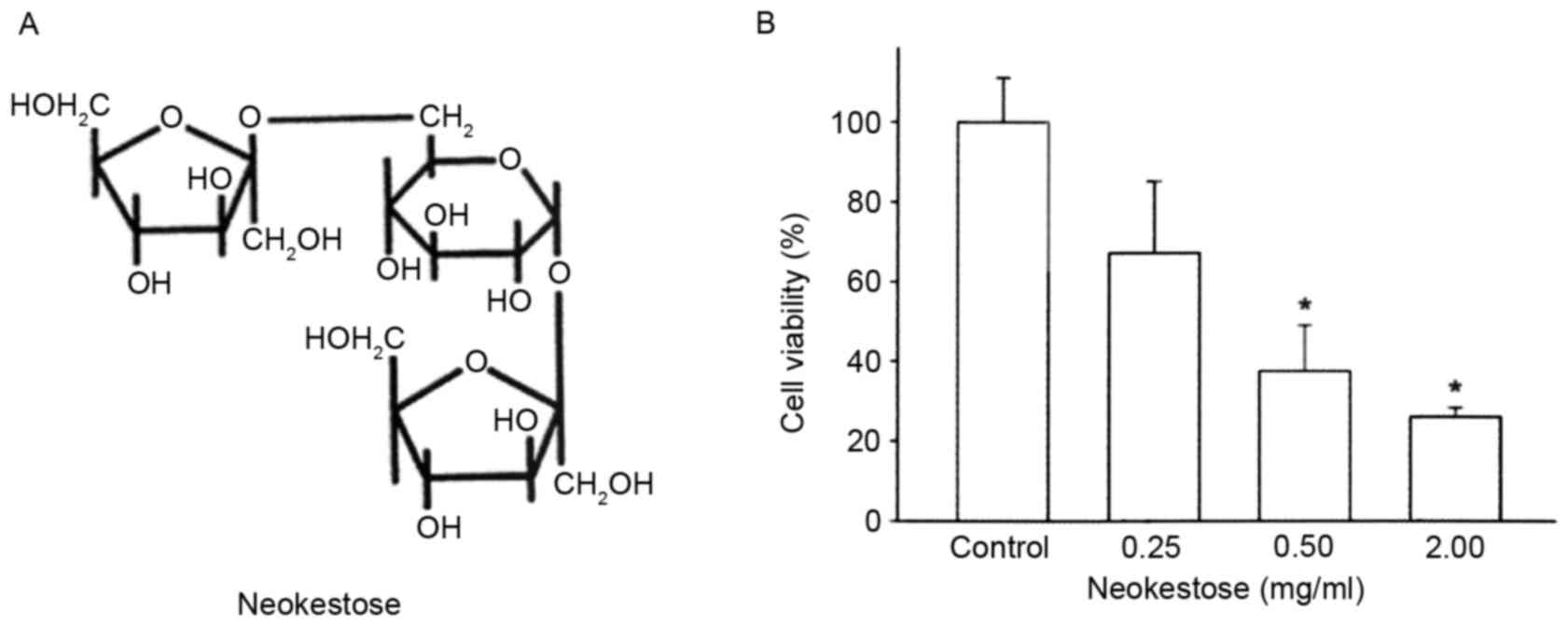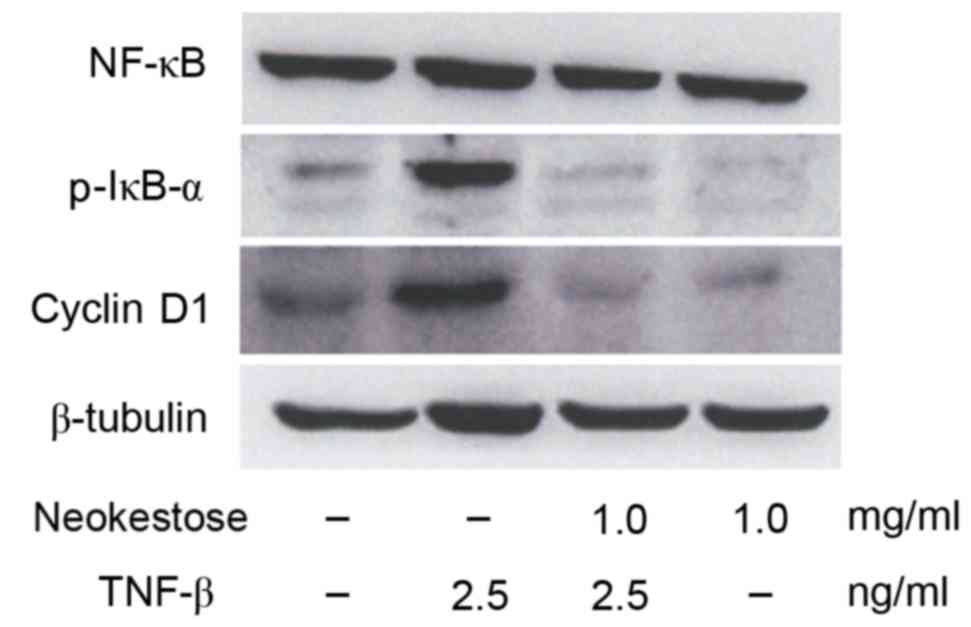|
1
|
Eggermont AM, Spatz A and Robert C:
Cutaneous melanoma. Lancet. 383:816–827. 2014. View Article : Google Scholar : PubMed/NCBI
|
|
2
|
Mashima E, Inoue A, Sakuragi Y, Yamaguchi
T, Sasaki N, Hara Y, Omoto D, Ohmori S, Haruyama S, Sawada Y, et
al: Nivolumab in the treatment of malignant melanoma: Review of the
literature. Onco Targets Ther. 8:2045–2051. 2015.PubMed/NCBI
|
|
3
|
Robert C, Dummer R, Gutzmer R, Lorigan P,
Kim KB, Nyakas M, Arance A, Liszkay G, Schadendorf D, Cantarini M,
et al: Selumetinib plus dacarbazine versus placebo plus dacarbazine
as first-line treatment for BRAF-mutant metastatic melanoma: A
phase 2 double-blind randomised study. Lancet Oncol. 8:733–740.
2013. View Article : Google Scholar
|
|
4
|
Larkin J, Ascierto PA, Dréno B, Atkinson
V, Liszkay G, Maio M, Mandalà M, Demidov L, Stroyakovskiy D, Thomas
L, et al: Combined vemurafenib and cobimetinib in BRAF-mutated
melanoma. N Engl J Med. 20:1867–1876. 2014. View Article : Google Scholar
|
|
5
|
Niezgoda A, Niezgoda P and Czajkowski R:
Novel Approaches to treatment of advanced melanoma: A review on
targeted therapy and immunotherapy. Biomed Res Int.
2015:8513872015. View Article : Google Scholar : PubMed/NCBI
|
|
6
|
Gandini S, Sera F, Cattanizza MS, Pasquini
P, Picconi O, Boyle P and Melchi CF: Meta-analysis of risk factors
for cutaneous melanoma: II. Sun exposure. Eur J Cancer. 41:45–60.
2005. View Article : Google Scholar : PubMed/NCBI
|
|
7
|
Dhawan P, Singh AB, Ellis DL and Richmond
A: Constitutive activation of Akt/protein kinase B in melanoma
leads to up-regulation of nuclear factor-kappaB and tumor
progression. Cancer Res. 62:7335–7342. 2002.PubMed/NCBI
|
|
8
|
McNulty SE, Tohidian NB and Meyskens FL
Jr: RelA, p50 and inhibitor of kappa B alpha are elevated in human
metastatic melanoma cells and respond aberrantly to ultraviolet
light B. Pigment Cell Res. 14:456–465. 2001. View Article : Google Scholar : PubMed/NCBI
|
|
9
|
McNulty SE, del Rosario R, Cen D, Meyskens
FL Jr and Yang S: Comparative expression of NFkappaB proteins in
melanocytes of normal skin vs. benign intradermal naevus and human
metastatic melanoma biopsies. Pigment Cell Res. 17:173–180. 2004.
View Article : Google Scholar : PubMed/NCBI
|
|
10
|
Schmitz ML, Mattioli I, Buss H and Kracht
M: NF-kappaB: A multifaceted transcription factor regulated at
several levels. Chembiochem. 5:1348–1358. 2004. View Article : Google Scholar : PubMed/NCBI
|
|
11
|
Gilmore TD: Introduction to NF-kappaB:
Players, pathways, perspectives. Oncogene. 51:6680–6684. 2006.
View Article : Google Scholar
|
|
12
|
Sherr CJ and Roberts JM: CDK inhibitors:
Positive and negative regulators of G1-phase progression. Genes
Dev. 13:1501–1512. 1999. View Article : Google Scholar : PubMed/NCBI
|
|
13
|
Bartkova J, Lukas J, Guldberg P, Alsner J,
Kirkin AF, Zeuthen J and Bartek J: The p16-cyclin D/Cdk4-pRb
pathway as a functional unit frequently altered in melanoma
pathogenesis. Cancer Res. 56:5475–5483. 1996.PubMed/NCBI
|
|
14
|
Chin L, Merlino G and DePinho RA:
Malignant melanoma: Modern black plague and genetic black box.
Genes Dev. 12:3467–3481. 1998. View Article : Google Scholar : PubMed/NCBI
|
|
15
|
Filmus J, Robles AI, Shi W, Wong MJ,
Colombo LL and Conti CJ: Induction of cyclin D1 overexpression by
activated ras. Oncogene. 9:3627–3633. 1994.PubMed/NCBI
|
|
16
|
Sullivan RJ and Flaherty KT: Resistance to
BRAF-targeted therapy in melanoma. Eur J Cancer. 6:1297–1304. 2013.
View Article : Google Scholar
|
|
17
|
Sauter ER, Yeo UC, von Stemm AV, Zhu W,
Litwin S, Tichansky DS, Pistritto G, Nesbit M, Pinkel D, Herlyn M
and Bastian BC: Cyclin D1 is a candidate oncogene in cutaneous
melanoma. Cancer Res. 62:3200–3206. 2002.PubMed/NCBI
|
|
18
|
Gibson GR and Roberfroid MB: Dietary
modulation of the human colonic microbiota: Introducing the
concepts of prebiotics. J Nutr. 125:1401–1412. 1995.PubMed/NCBI
|
|
19
|
Lim JS, Lee JH, Kang SW, Park SW and Kim
SW: Studies on production and physical properties of neo-FOS
produced by co-immobilized Penicillium citrinum and
neo-fructosyltransferase. Eur Food Res Technol. 225:457–462. 2007.
View Article : Google Scholar
|
|
20
|
Kilian S, Kritzinger S, Rycroft C, Gibson
G and du Preez J: The effects of the novel bifidogenic
trisaccharide, neokestose, on the human colonic microbiota. World J
Microbiol Biotechnol. 18:637–644. 2002. View Article : Google Scholar
|
|
21
|
Lee SM, Chang JY, Wu JS and Sheu DC:
Antineoplastic effect of a novel chemopreventive agent, neokestose,
on the Caco-2 cell line via inhibition of expression of nuclear
factor-κB and cyclooxygenase-2. Mol Med Rep. 12:1114–1118.
2015.PubMed/NCBI
|
|
22
|
Kritzinger SM, Kilian SG, Potgieter MA and
de Preez JC: The effect of production parameters on the synthesis
of the prebiotic trisaccharide, neokestose, by Xanthophyllomyces
dendrorhous (Phaffia rhodozyma). Enzyme Microb Technol. 32:728–737.
2003. View Article : Google Scholar
|
|
23
|
Sheu DC, Chang JY, Chen YJ and Lee CW:
Production of high-purity neofructooligosaccharides by culture of
Xanthophyllomyces dendrorhous. Bioresour Technol. 132:432–435.
2013. View Article : Google Scholar : PubMed/NCBI
|
|
24
|
Ghosh S and Karin M: Missing pieces in the
NF-kappaB puzzle. Cell. 109:(Suppl). S81–S96. 2002. View Article : Google Scholar : PubMed/NCBI
|
|
25
|
Luqman S and Pezzuto JM: NFkappaB: A
promising target for natural products in cancer chemoprevention.
Phytother Res. 24:949–963. 2010.PubMed/NCBI
|
|
26
|
Gupta SC, Sundaram C, Reuter S and
Aggarwal BB: Inhibiting NF-κB activation by small molecules as a
therapeutic strategy. Biochim Biophys Acta. 1799:775–787. 2010.
View Article : Google Scholar : PubMed/NCBI
|
|
27
|
Lin YZ, Yao SY, Veach RA, Torgerson TR and
Hawiger J: Inhibition of nuclear translocation of transcription
factor NF-kappa B by a synthetic peptide containing a cell
membrane-permeable motif and nuclear localization sequence. J Biol
Chem. 270:14255–14258. 1995. View Article : Google Scholar : PubMed/NCBI
|
|
28
|
Ariga A, Namekawa J, Matsumoto N, Inoue J
and Umezawa K: Inhibition of tumor necrosis factor-alpha-induced
nuclear translocation and activation of NF-kappa B by
dehydroxymethylepoxyquinomicin. J Biol Chem. 277:24625–24630. 2002.
View Article : Google Scholar : PubMed/NCBI
|
|
29
|
Chen C, Liu Y, Chen Y and Xu J: C086, a
novel analog of curcumin, induces growth inhibition and
down-regulation of NFκB in colon cancer cells and xenograft tumors.
Cancer Biol Ther. 12:797–807. 2011. View Article : Google Scholar : PubMed/NCBI
|



















